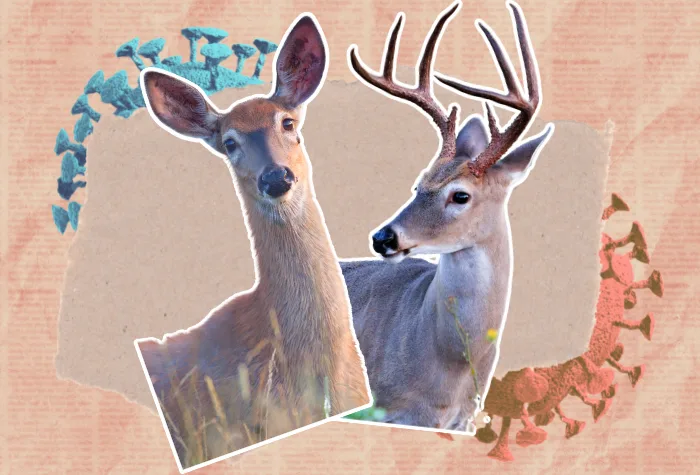
SARS-CoV-2 has been detected in Canadian wildlife
On November 29, 2021, the National Centre for Foreign Animal Disease confirmed detections of SARS-CoV-2 in three free-ranging white-tailed deer in southern Quebec.
An August preprint published in the journal bioRxiv estimated that up to 40 per cent of wild white-tailed deer in the U.S. and on Wednesday, the Government of Canada announced that on November 29, 2021, the National Centre for Foreign Animal Disease (CFIA) confirmed detections of SARS-CoV-2 in three free-ranging white-tailed deer in southern Quebec - a Canadian first.
"Similar to findings in the United States, the deer showed no evidence of clinical signs of disease, and were all apparently healthy," the government said in a press release.
Officials are still collecting information on the impact and spread of the disease in the wild deer population, with limited data available so far.
Deer aren't the only anmials that can get COVID - there has been evidence of primates, big (and domestic) cats, dogs, swine, bats, and Mustelidae - which includes weasels, badgers, otters, ferrets, martens, and minks, among others - have shown susceptibility to the disease.
VIDEO: CANADIAN ZOO ANIMALS LINE UP FOR COVID VACCINE
ZOONOTIC SPILLOVER
Experts say COVID-19 is an example of a zoonotic spillover event, which occurs when a virus overcomes several roadblocks and becomes feasible in another species. COVID-19 is presumed to have transferred from bats to humans.
Reports in the United States suggest evidence of a spillover of SARS-CoV-2 from humans to wild white-tailed deer, the Canadian Government says in its statement, but there has been no known transmission of SARS-CoV-2 from deer to humans to date.
Thumbnail graphic by Cheryl Santa Maria. Image credits: Deer (silofix/cmcneill17/Getty Images Pro/Canva Pro) Paper (THP Creative) 3D rendering of a coronavirus (berezkophotos) Newspaper (Olga Z/Getty Images Pro)











